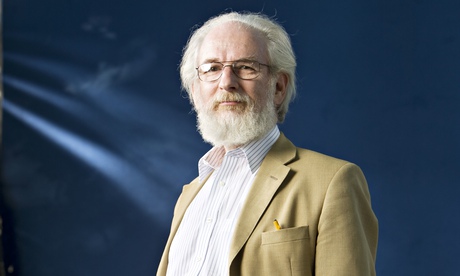It’s an exciting time for grammar, according to the experts. But there’s a need for fresh thinking and the word itself can be misleading
Some of the country’s most eminent linguists came together for English Grammar Day, presented by UCL and Oxford University in association with the British Library, last week. With talks from grammarians includingDavid Crystal and Dick Hudson, the event served as a crash course in the history, prevalence and importance of grammar. The main focus, however, was on the problems with how grammar is taught in schools.
How things have to improve was made clear: we need to embrace grammar, teach it in context and uphold its importance within the education system. One answer is to call it something else. Lindsey Thomas, school improvement consultant at Buckinghamshire Learning Trust, suggested that teachers replace the word “grammar” with “understanding language”.
Using the word “grammar”, she said, can conjure off-putting images of an old-fashioned classroom. It makes it sound like a secret you’re not let in on, and has associations of “right” or “wrong”. On the other hand, “understanding” or “knowledge about language” make it sound more positive.
Crystal said: “You have to put the notion of grammar in the background. It’s about meaning and clarity. Clarity unites us. I’m not afraid to use the word grammar, but I can see why people would be.”
It’s not just grammar’s name that’s the problem. In addition to its unshakeable, unhelpful reputation, there are deeper issues. The government’s Spelling, Punctuation and Grammar (SPaG) tests were repeatedly mentioned as the main barrier to children’s learning, and Crystal was probably the most vehement in his criticism.
Grammar needs context,” he said. “With the new SPaG tests children get marks for underlining a noun. It seems like all the fresh thinking has gone and the clocks have been turned back. There’s no room for creativity with the SPaG tests because they’re about identifying, not understanding.”
Crystal said the work being done in classrooms across the UK to tackle such problems, and the people behind it, had shaped his own outlook and approach towards teaching grammar. He says it’s all about involving children in enjoyable grammar exercises, showing them, and asking them “why” and “what if?”
He has been working with Thomas on the Buckinghamshire Grammar Project. “I don’t understand why this sort of thing isn’t happening in more schools,” he said. His sentence trailed off with the word “expensive”.
There may be a glimmer of hope in the curriculum. Hudson, who is the government’s adviser on grammar for the SPaG test, said the 2016 version would be “very different”. This was all he would say on the matter, but I’m hopeful that, in this instance, different could mean better.
Even if the tests don’t improve, there’s no knowing how far the prevailing force of the grammarians will reach. They are leading the way, armed with expertise and conviction, and getting into classrooms to teach grammar in contextualised and engaging ways.
As well as the influence of grammarians, children also have the grammar renaissance on their side. Hudson said: “In the 60s, a day like today would be unimaginable. But it’s very different now. It’s a big issue and it’s an exciting time for grammar. Grammar is old, international and big. It isn’t a peculiarity of a few people who think it’s a good idea.
“Between 1920 and 1960, English grammar disappeared from the curriculum of most schools in England. There was no research being done on grammar. Since the 1960s it has been gradually reintroduced, and now, once again, has a central place in the curriculum.”
It all sounds promising for pupils, but this made me think about my generation of twentysomethings. Typical self-obsessed Gen Y, I know, but I’ve sensed a distinct lack of interest in grammar among my age group.
David Crystal says I am part of the “last of a lost generation” who didn’t learn proper grammar. But with the UK now emerging from this grammar lull, a detritus of lingering grammar myths and unconfident “lost generation” teachers are left behind. This combination isn’t conducive to children learning grammar, and often means teachers are unwittingly teaching incorrect things.
With this in mind, I asked Crystal if there is any hope for my “lost” generation. He said all we can do to improve our grammar is attend events like Grammar Day. It was only afterwards that I wondered why he hadn’t suggested reading books – especially as he’d just been signing copies of his own.
